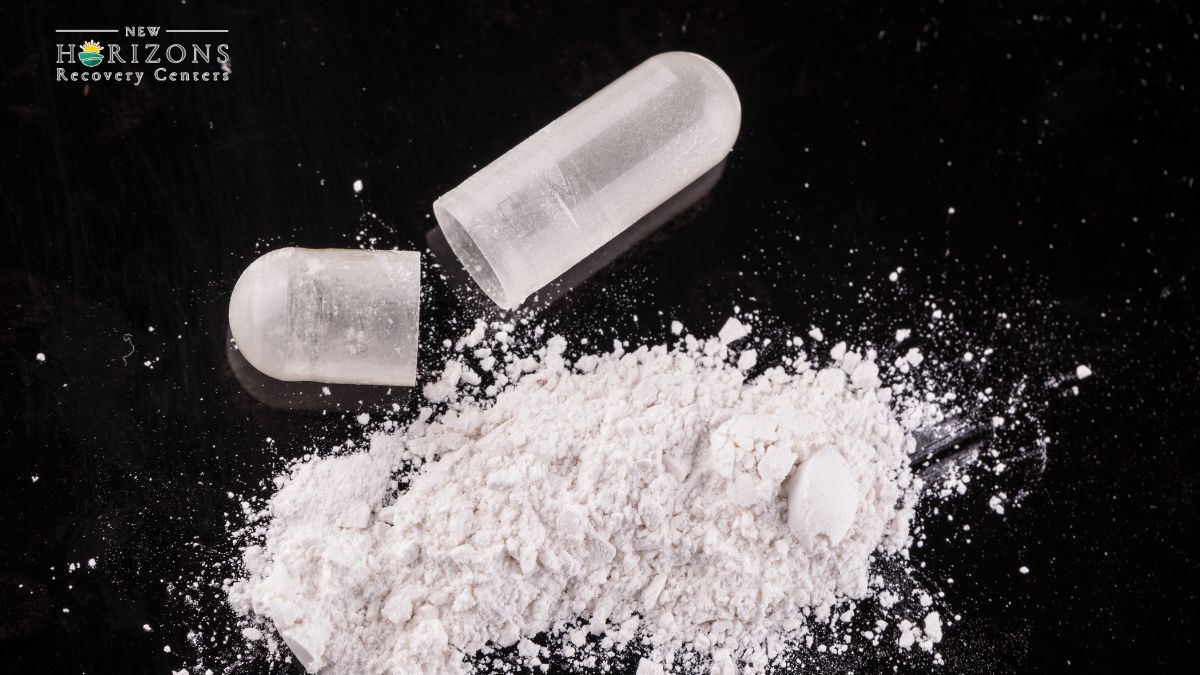Understanding Teen Depression
Teen depression is a significant mental health concern that affects many adolescents. It is important to gain a deeper understanding of the prevalence of teen depression and the factors that contribute to its development.

Prevalence of Teen Depression
Teen depression is a prevalent issue among teenagers, with approximately one out of every eight adolescents experiencing depression according to findings from WebMD. This statistic highlights the significance and impact of teen depression on the overall well-being of young individuals.
Research has shown that around 20% of adolescents experience depression before adulthood, with approximately one-fifth of all teenagers struggling with a shifted mindset during their high school years, affecting their educational development. It is crucial to recognize that these struggles are not due to laziness but are the result of medically diagnosed mental health disorders caused by chemical imbalances as explained by Promly.
Factors Contributing to Teen Depression
Teen depression can stem from a variety of factors. Feelings of worthlessness, social status, family life, and environmental stress can all contribute to the development of depression in teenagers, according to WebMD. It is important to keep in mind that depression is a complex condition influenced by both genetic and environmental factors.
Several factors may play a role in teen depression, including genetics, brain chemistry, hormones, trauma, and stress, as noted by MedlinePlus. Understanding these contributing factors is essential in order to provide adequate support and intervention for teenagers who may be experiencing depression.
The teenage years are a critical period for the development of human capital, and the impact of depression during this time can have long-lasting effects. Lifetime prevalence for major depression in later adolescence (ages 15-18) is very similar to the prevalence in adults. This highlights the importance of addressing teen depression and its impact on various aspects of life, including education and future employability, as discussed in an article by NCBI.
By understanding the prevalence of teen depression and the contributing factors, we can take steps towards better identifying, supporting, and providing appropriate interventions for teenagers dealing with this mental health issue.
Signs and Symptoms of Teen Depression
Recognizing the signs and symptoms of teen depression is crucial for early identification and intervention. Depression in teenagers can manifest in various ways, both in terms of behavior and emotions. By understanding these indicators, parents and loved ones can provide appropriate support and seek professional help when necessary.
Behavioral Indicators
Teenagers experiencing depression may exhibit changes in their behavior and daily routines. It's important to pay attention to the following behavioral indicators:
- Persistent feelings of sadness or irritability: Teens with depression may display a consistently low mood, irritability, or anger that is disproportionate to the situation.
- Loss of interest in activities: Teens may lose interest in hobbies, sports, or socializing with friends and family. Activities that previously brought them joy may no longer hold any appeal.
- Changes in appetite or weight: Depression can affect appetite, leading to a significant increase or decrease in food intake. This may result in noticeable weight gain or weight loss.
- Changes in sleep patterns: Teens with depression may experience changes in their sleep patterns, such as insomnia or excessive sleepiness.
- Fatigue or low energy: A lack of motivation and persistent feelings of fatigue are common symptoms of teen depression. Simple tasks may feel overwhelming and exhausting.
- Difficulty concentrating: Depression can impair a teenager's ability to concentrate, leading to a decline in academic performance and difficulty completing tasks.
- Thoughts of death or suicide: If a teenager expresses thoughts of death, self-harm, or suicide, it is essential to take these statements seriously and seek immediate professional help.
Emotional Indications
Emotional changes are often prevalent in teenagers experiencing depression. Look out for the following emotional indications:
- Persistent feelings of sadness, hopelessness, or helplessness: Teens with depression may experience a deep sense of sadness that lasts for an extended period. They may feel hopeless about the future or believe that their situation will never improve.
- Increased irritability or anger: Depression can manifest as increased irritability and a heightened sensitivity to criticism or perceived slights. Teens may display angry outbursts or become easily frustrated.
- Feelings of worthlessness or guilt: Teens with depression may have a diminished sense of self-worth and experience excessive guilt over perceived failures or shortcomings.
- Loss of interest in personal appearance: Depressed teenagers may neglect their personal hygiene and appearance, showing a lack of interest in grooming or self-care.
It's important to note that these signs and symptoms may vary among individuals, and not all teenagers will exhibit every indication. However, if a teenager displays several of these signs persistently for more than a few weeks, it may be an indication of teen depression. Early recognition and intervention are key to providing the necessary support and treatment. If you suspect that a teenager is experiencing depression, it is crucial to seek professional help from a mental health provider who specializes in adolescent mental health. For more information on available resources, refer to our article on resources for adolescent mental health.
Assessing and Managing Teen Depression
When it comes to teen depression, it's crucial to assess the severity of the condition and develop an effective management plan. Seeking professional help and exploring treatment options are important steps in supporting teens struggling with depression.
Seeking Professional Help
If you suspect that a teenager may be experiencing depression, it's vital to seek professional help. Mental health professionals, such as psychologists, psychiatrists, or licensed therapists, have the expertise to assess and diagnose teen depression. They can conduct interviews and psychological tests with the teen, family members, teachers, and peers to gather comprehensive information about the individual's mental health.
In severe cases, where there is a risk of suicide or self-harm, immediate intervention is necessary. The National Helpline provided by the Substance Abuse and Mental Health Services Administration (SAMHSA) can offer assistance and guidance. In 2020, the SAMHSA Helpline received 833,598 calls, indicating the increasing need for support.
When seeking professional help, it is important to find a therapist whom the teenager feels comfortable with. Allowing the teen to choose a therapist they connect with can foster a positive therapeutic relationship. Therapies such as cognitive-behavioral therapy (CBT), dialectical-behavioral therapy (DBT), and interpersonal therapy (IPT) have proven to be effective in treating teen depression [2]. For more information, check out our article on therapy for teens.
Treatment Options
Effective treatment for teen depression often involves a combination of talk therapy and, in some cases, medication. Talk therapy, also known as psychotherapy or counseling, plays a crucial role in helping teens manage their depression. Different types of talk therapy, such as cognitive-behavioral therapy (CBT) and interpersonal therapy (IPT), can be beneficial in addressing the underlying causes of depression and teaching coping mechanisms [3].
Some teens may also benefit from medication as part of their treatment plan. Antidepressants can help alleviate symptoms of depression; however, it's important to closely monitor for any increase in suicidal thoughts or behaviors, especially during the initial weeks of treatment. Medication should always be prescribed and monitored by a qualified healthcare professional.
In addition to traditional treatment approaches, alternative therapies can also be explored to complement the treatment plan. These may include mindfulness techniques, art therapy, or group therapy. It's important to discuss these options with the mental health professional to determine what might be most effective for the individual teenager. For more information on alternative therapies, refer to our article on resources for adolescent mental health.
By seeking professional help and exploring appropriate treatment options, parents and loved ones can play a vital role in managing teen depression. It's important to establish open lines of communication with the teen, provide support, and encourage them to actively participate in their treatment journey. Remember, each individual's experience with depression is unique, and a personalized approach to treatment is necessary to support their mental well-being.
Impact of Teen Depression on Education
Teen depression can have a significant impact on a teenager's education. The challenges they face and the effects on their academic performance are important considerations when addressing their mental health needs.
Educational Challenges
Approximately 20% of adolescents experience depression before adulthood, with one-fifth of all teenagers struggling with a shifted mindset during their high school years, impacting their educational development [4]. It is crucial to understand that this struggle is not due to laziness but is a result of medically diagnosed mental health disorders caused by chemical imbalances.
Teenagers aged 14-19 are the most commonly diagnosed age group with depression, which significantly affects their high school years, a crucial period in their lives. Depression in teenagers can lead to several educational challenges, including:
- School refusal: Teenagers with depression may experience a strong aversion to attending school, leading to frequent absences and potential academic setbacks. This can be a manifestation of their struggle with mental health and should not be dismissed as mere truancy.
- Struggling concentration: Depression can impair a teenager's ability to focus and concentrate in the classroom. They may find it difficult to pay attention to lessons and retain information, which can hinder their learning and academic performance.
- Lack of energy: Teenagers with depression often experience feelings of fatigue and a lack of energy. This can make it challenging for them to engage actively in school activities and perform at their full potential.
Academic Performance
Depression in teenagers can significantly impact their academic performance. The lack of motivation and the cognitive effects of depression can lead to a decline in school work and achievement. Some effects on academic performance may include:
- Inconsistent performance: Teenagers with depression may experience unpredictable behaviors and actions due to lower levels of dopamine and serotonin, affecting their mood and school performance. The lack of these neurotransmitters can lead to irregular moods and inconsistent behavior in the classroom.
- Poor school work: Depression can cause teenagers to question their purpose in life, leading to a lack of motivation for everyday activities, especially academics. They may feel unworthy of success, resulting in a decrease in school performance. It is essential to recognize that this decline should not be mistaken for laziness or being a "bad" student [4].
- Decreased engagement: Teenagers with depression may withdraw socially and emotionally, leading to reduced participation and engagement in classroom activities. This disengagement can further impact their academic progress and overall educational experience.
Recognizing the impact of teen depression on education is crucial for parents, educators, and healthcare professionals. By understanding these challenges and their effects on academic performance, appropriate support and interventions can be implemented to help teenagers with depression thrive academically and personally. It's important to seek professional help and explore treatment options to address teen depression effectively and create a supportive environment for their educational journey.
Preventing Teen Depression
Taking proactive steps to prevent teen depression is crucial for promoting mental well-being and overall health. There are several strategies that can be implemented, including the role of school nurses and early intervention strategies.
Role of School Nurses
School nurses play a vital role in identifying students who may be struggling with depressive symptoms. Adolescents experiencing depression often present with somatic complaints, such as headaches or stomachaches, rather than openly discussing their emotional struggles. School nurses, trained in recognizing these signs, can provide support and connect students with appropriate resources and interventions. By addressing these symptoms early on, the negative cycle of depressive symptoms impacting school performance can be interrupted, improving the educational trajectories of at-risk adolescents [5].
Early Intervention Strategies
Early intervention is key in preventing the onset or progression of teen depression. Here are some strategies that can be implemented:
- Promote open communication: Encourage open and honest conversations about mental health. Create a safe and supportive environment where teens feel comfortable discussing their emotions and seeking help. For guidance on how to start these conversations, refer to our article on talking about adolescent mental health.
- Provide access to mental health resources: Ensure that teens have access to reliable and age-appropriate resources for adolescent mental health. This can include providing information about therapy options (therapy for teens), self-help materials, online resources, and helplines. For a comprehensive list of resources, refer to our article on resources for adolescent mental health.
- Encourage healthy coping mechanisms: Teach teens healthy coping mechanisms to manage stress and emotions. Techniques such as cognitive-behavioral therapy (CBT), mindfulness exercises (mindfulness for adolescents), and creative outlets like art therapy (art therapy for teens) can be effective in promoting emotional well-being.
- Foster a supportive school environment: Schools can implement policies and programs that promote mental health awareness, reduce stigma, and provide support for students. This can include initiatives like peer support groups, counseling services, and workshops on stress management and resilience. Group therapy for adolescents (group therapy for adolescents) can also be beneficial in creating a sense of community and shared experiences.
- Address social media impact: Help teens navigate the potential negative effects of social media on mental health. Discuss healthy boundaries, positive online relationships, and the importance of taking breaks from social media. For guidance on this topic, refer to our article on teens coping with social media anxiety and pressure.
By recognizing the role of school nurses and implementing early intervention strategies, we can work towards preventing teen depression and promoting the mental well-being of adolescents. It is important to remember that each individual is unique, and a holistic approach that takes into account their specific circumstances and needs is essential in preventing and addressing teen depression.

-ink.jpeg)





